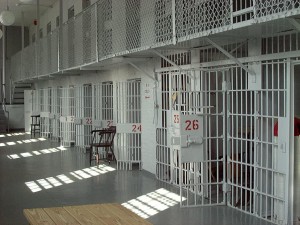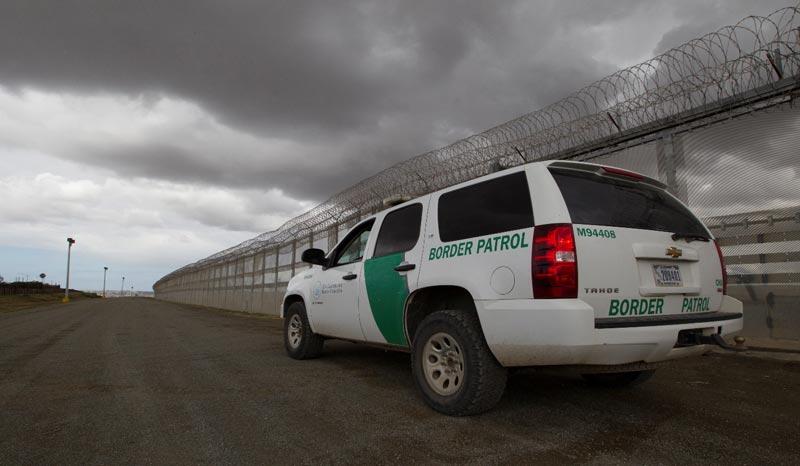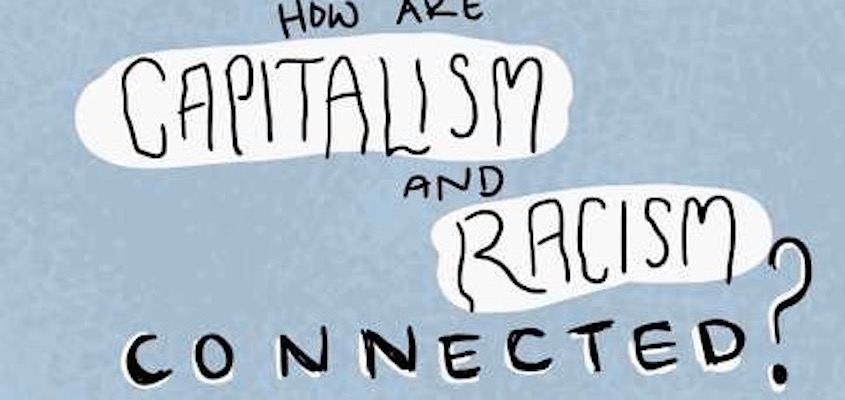(ThyBlackMan.com) America has long had a problem with incarceration. More American citizens are put behind bars than any country in the world. The system exists and grows because incarceration is profitable, especially for private prisons. But besides the private institutions, there are numerous entities that depend financially on the incarceration of citizens as a key to their survival: Small towns beg for prisons as a source of new jobs, police officers get extra pay for making more arrests and court appearances, attorneys get rich by defending and prosecuting the cases, court administrators make money from various fees and fines that come from incarceration, the list doesn’t stop.
I received a note on my Facebook page from a group that works on the website Prisology.com. The organization is putting together a petition that I plan to support, asking that the federal government take prison reform seriously. In many cases, the reforms show mild progress, but don’t make any sense.
For example, the change in the Crack-to-powder disparity (where crack offenders received sentences that were 100 times longer than those who possess cocaine) was not applied retroactively, a decision that has less than honorable motives. Why in the world would it make sense to keep people in prison due to antiquated laws that you’ve announced to be unjust? This is nothing short of pure evil.
possess cocaine) was not applied retroactively, a decision that has less than honorable motives. Why in the world would it make sense to keep people in prison due to antiquated laws that you’ve announced to be unjust? This is nothing short of pure evil.
The group is asking that the public help with their push against mass incarceration and that we demand that there not be the same compromises that have served to water down legislation of the past.
The U.S. Senate is considering legislation that would reform the federal criminal justice system. Despite support within Congress for these reforms, the Senate continues to postpone votes on the legislation. You can help make these reforms possible by taking a moment to read and submit this letter. Every letter that is submitted will be faxed to the U.S. Senate Judiciary Committee, and different U.S. Senators with influence over these issues. In addition, when you submit your letter, we will add your name and e-mail address to our newsletter list so you can stay up to date about Prisology’s work to reform the criminal justice system.
The group writes a strong letter explaining their position and what they are looking for. The letter, written in the signer’s voice, explains how a series of very important pieces of legislation were postponed from vote because our do-nothing Congress made a set of decisions that have only served to further harm the families of prison inmates who’ve received unjust sentences.
The goal here is not to argue that every person in prison is innocent, or that prisons should not exist. Instead, it is to simply create a system where the punishment fits the crime. Sentences should be racially-balanced, ensure rehabilitation and not be disproportionate to the magnitude of the given offense.
The petition letter states,
I am writing today because I care about federal prison reform, and the work Prisology does on these fronts. On December 19, 2013, the U.S. Senate Judiciary Committee was set to vote on S.619, Justice Safety Valve Act of 2013, S.1410, Smarter Sentencing Act of 2013, and S.1675, Recidivism Reduction and Public Safety Act of 2013. These bills, if passed, will help bring about modest—but still much needed—reforms to the federal criminal justice system. To the hope and dismay of 219,000 federal prisoners, and their many millions of voting loved ones and friends, the Committee again postponed action on these bills. The postponement was due to some sort of “compromise” legislation that is being sought by unknown members of the Committee.
You can sign the petition here.
When Russell Simmons and I put together our campaign to confront mass incarceration, I became further educated on the problem, as well as some of the politics and economics behind our country’s warped system of punishment and “rehabilitation.” Most of us are aware by now that the system has no intention of rehabilitating anyone, and the 175 celebrities/scholars/activists who signed our petition seemed to have clear understanding that America has a serious problem.
During the campaign, I concluded that it is not in the short-term interest of America’s political and financial elite to end the mass incarceration epidemic. The truth is that it’s just too profitable.
If we somehow believe that our nation is not sinister enough to try to profit from slavery, consider this: The 13th Amendment of the US Constitution only prohibits slavery if you haven’t been convicted of a crime. This means that major corporations are allowed to economically benefit from slave labor as long as the government finds a way to convict you. They can convict you for almost anything, and if they want to target a certain segment of the population, it’s only required that they figure out what you’re more likely to do and find a way to make it highly illegal to do so. For example, if I were seeking to incarcerate more black men, I’d simply create a law stating that not paying child support on time mandates a 10 year prison sentence. Since black men have the highest rate of unemployment in the country, they would be the fish most likely to fall into my net.
If I wanted to incarcerate members of the Latino community, I’d create a law that incarcerates anyone for aiding and abetting an illegal immigrant. The list goes on.
The point in all of this is to say that it’s naïve to think that laws are designed to protect you. Actually, they are designed to support and protect the interests of the wealthy. When it comes to irresponsible capitalism, doing the right thing is hardly ever profitable. Individuals and institutions who are obsessed with economic gain don’t typically have much of a soul. In that regard, black people are a lot like cows or pigs on a farm: Born, bred and raised not to experience the richness of life, but to instead be slaughtered and consumed as part of a broader economic engine.
Parents wishing to save their children from this system would be wise to realize the grim truth: They DO NOT want your son to get a good education, which is why his school might be failing. They DO NOT want your son to get a good job, which is why the jobs have disappeared. Human beings who’ve been granted liberty, prosperity and a sense of purpose do not have much value to the economic outcomes of the prison industrial complex. To the capitalist machine, a black man being empowered can be like a farm animal trying to go to college. The point here is that we must love our children, even if the world does not. In a racist society, only we can clearly see their value.
Another way that mass incarceration has a financial impact is that it threatens the economic future of black America. I don’t care what anyone thinks, but nearly every statistical indicator says that stable families with two parents in the home are better off economically than single parent households. If more black men were able to find economic opportunities and weren’t being consistently hounded by the criminal justice system, they’d be eligible for marriage or long-term relationships that make them primary providers for other people in their lives.
Men are meant to provide and protect and black men are unable to do this if they are trying to avoid the death trap of incarceration. This doesn’t even consider the fact that convicted felons are disallowed access to nearly all economic opportunities even after they’ve paid their debt to society. We must be smart about how we attack this problem and realize that the people in power are NOT our friends. If our liberal buddies aren’t interested in helping us to solve this problem, then we should not give them our support. We have to do what’s best for our children.
If we don’t fight for ourselves, then no one else will? Please sign the petition.
Staff Writer; Dr. Boyce Watkins
Dr. Boyce Watkins is the founder of the Your Black World Coalition. For more information, please visit http://BoyceWatkins.com.




















I think we’re missing the bigger picture and that is the mentality that allows us to give our hard earned money to people who are not interested in our well being. If we had our own educational system like the Jews, Chinese, and others, our children would have a different attitude about themselves and not be controlled by the media, instead of our family and community. If we had our own businesses and supported them, we wouldn’t need to do criminal acts in order to make money. I do believe we need real leadership and not just talkers, but it starts with our mentality. Until we change that, nothing else will change.
Black Unity means financial independence and happiness
ONE of the main reasons why JEWS are successful capitalist is that they are willing to engage in any nefarious industry or business practice that is profitable; just think JEWS are 2% of the population and yet they are 40% of the billionaire’s there is a reason for this and the private prison industry is a clear example of what these people willing do to make money.
IN 2003 the C.E.O of LEHMAN BROS RICHARD FULD a JEWISH investment banker discovered that the private prisons companies stock was undervalued and in fact nearly worthless.
IN his own words he said he used financial wizardry to make the stock of these companies look like sleek investment vehicles.
WITHIN three years he made the companies CCA; GEO GROUP and CORNELL CO. profitable for investors and even though LEHMAN BROS crashed and went bankrupt in 2008 other investment banks simply took over and these companies altogether made 3 billion in profits last year.
THESE companies main financial backers now are J.P MORGAN headed by JEWISH banker JAIME DIOMON and GOLDMAN SACHS headed by another JEWISH banker LlOYD BLANKFEIN; they also control a host of lobbying firms to keep the laws stringent to keep a steady supply of inmates in to their facilities.
THESE lobbying firms have been successful at getting laws like [ three strike] and [mandatory minimums] and their latest success was a guaranteed occupancy rate for their institutions.
I have to stop here and say that none of this is possible without the cooperation of our black leadership because they are sitting in our congressional seats while this type of legislation is being debated and then passed.
THE CBC’S responsibility is to our interest and what is good for us ; but that’s not what they’re doing they’re taking the JEWS lobby money and either assist them with this type of predatory legislation or look the other way.
I have compiled a list of 30 black congress people we must remove as quickly as possible not just out of anger but to prevent them from doing anymore harm to us.
THE worst offenders in the group of 30 who have shown will completely disregard us and our interest and who have taken the most JEWISH blood money is as follows.
FREDRICA WILSOM[D] FL
YVETTE CLARKE[D] NY
GREGORY MEEKS[D] NY
CHARLEY RANGEL[D] NY
MARCIA FUDGE[D] OH
CHAKA FATTAH[D]OH
TIM SCOTT[R] SC
SHEILA JACKSON LEE[D]TX
MARK VEASEY[D]TX
JOHN CONYERS[D] MI
MAXINE WATERS[D] CA
JOHN LEWIS[ GA].
Excellent article!